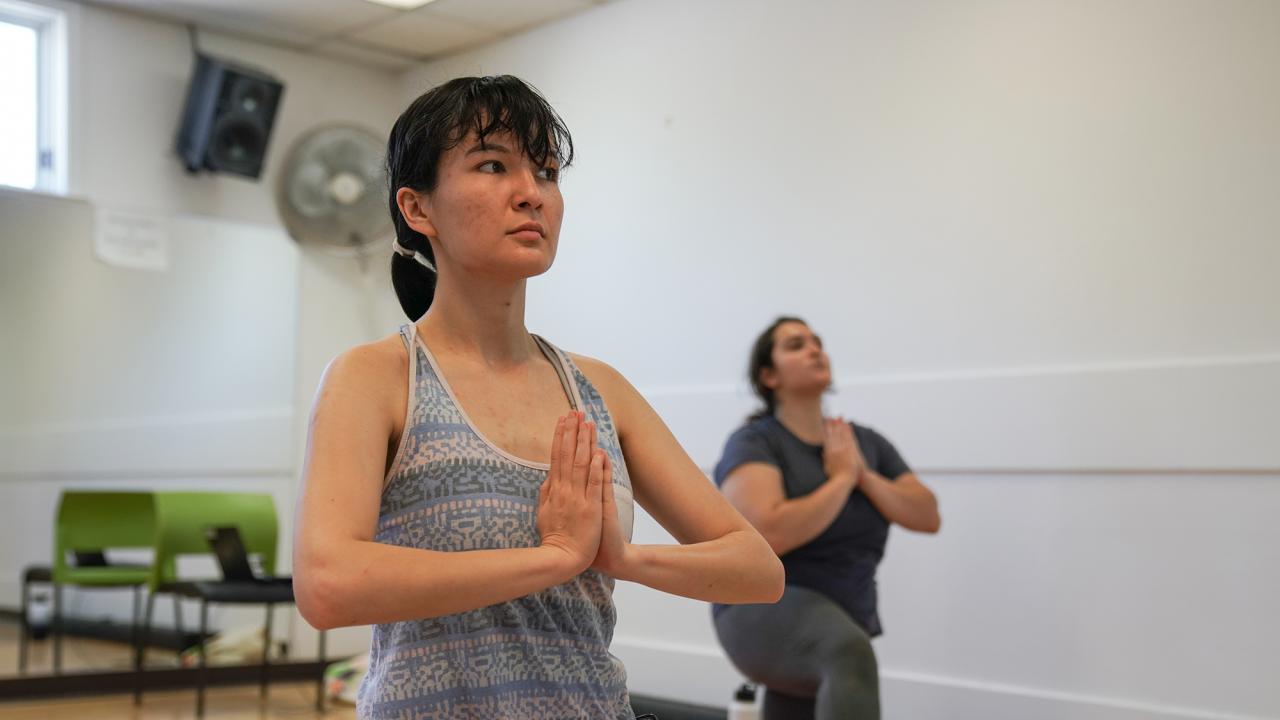Alison Rader picked up the pink and green towel she had used as a mat, drew a deep breath and smiled. “I’ve been feeling kind of keyed up,” the rising senior said. “Yoga in the morning helps release some of that tension.”
Soon the statistics major was off to class in a fast-paced, six-week course in calculus, but not before Summer Sessions staff, who had organized the yoga class, invited her to the next day’s coffee and donut gathering for students before exams in the first summer session.
The university continues to grow summer study — up 7.5% over last year to 15,549 students by the start of Summer Session II — as an important way to help students stay on track, finish their degree on time and explore interests. So a team of three is boosting efforts to help Summer Sessions students access campus resources, enjoy social activities and build community.
Many of these students may be unfamiliar with campus resources and without their regular friend groups and social support. Some entering students, including international students, are just getting to know UC Davis. Even continuing students may be missing friends who are spending summer elsewhere.
‘Speed friending’
Summer Sessions II started Aug. 4, and three days later one of the most popular offerings of the first session will be repeated: “speed friending,” promoted as an opportunity to find “summer sunny study buddies.” Students get acquainted in brief, individual conversations as they rotate among participants.
Summer Sessions increased the number of special events from 21 last year to 25, and more are unique. They include a kickoff with free Otter Pops, trivia and game nights, yoga, an afternoon exploration of the Arboretum, museum tours, snack stops and more.
Promoting conversation
Danniele Baila, program and policy analyst for Summer Sessions, said the most effective events have been those that foster conversation among students, like trivia and game nights — and especially speed friending. “We’re hitting it out of the park with that,” she said. “It pushed what it meant to create community on campus.”
The goal is that students — often busy and stressed with classes — will make new friends, find study partners and also get together on their own, whether it’s to visit the Davis Farmers Market, enjoy a concert in the city’s Central Park or explore California on a weekend trip with UC Davis Outdoor Adventures.
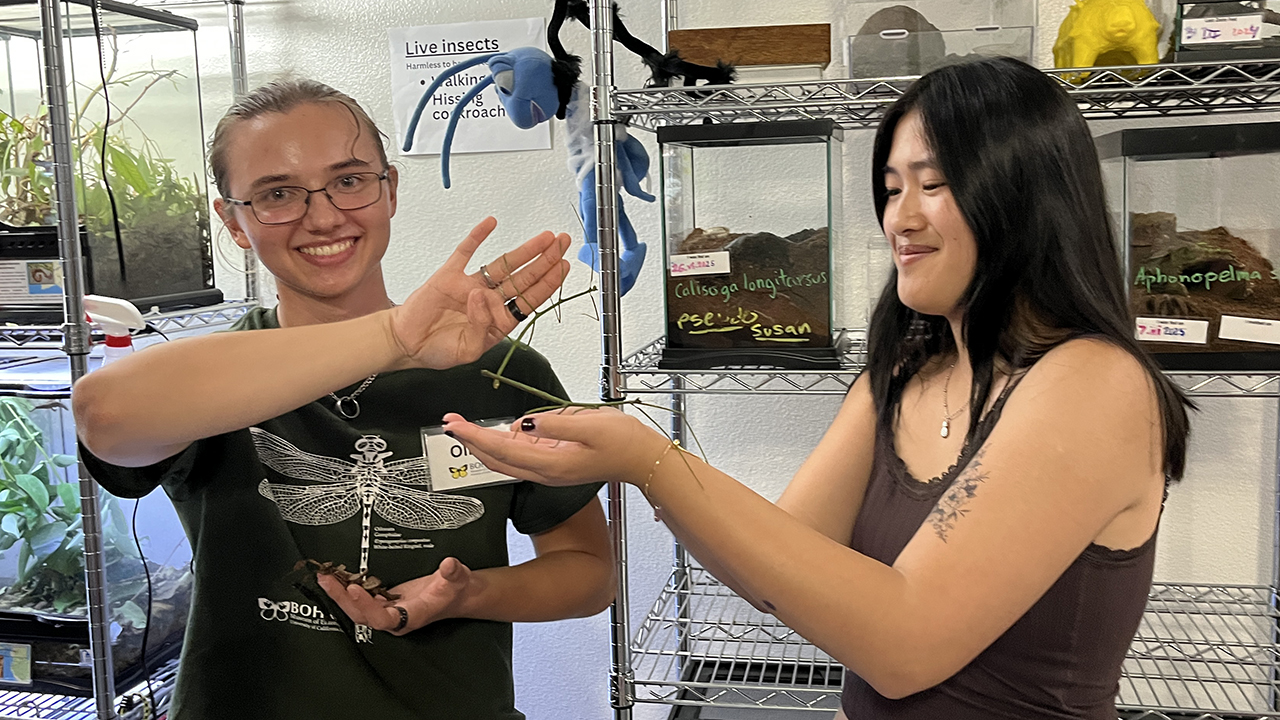
Teresa Huancas Flores and Kaili Geritz, both rising third-year students, attended the speed friending event in the first session. Then they buddied up for the Summer Sessions outing at the UC Davis Bohart Museum of Entomology’s annual Moth Night in mid-July.
“I’m being more social and talking to more people,” said Geritz, who took psychology, economics and human rights courses in the first session.
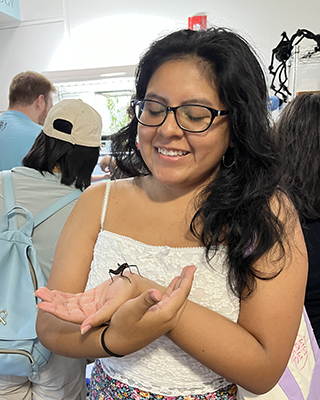
“It’s been helping me get out of the house,” Huancas Flores said of the program of social events. She has already completed a physics course and is taking organic chemistry in Summer Sessions II. “It helps me socialize,” she added.
Among the hundreds at the campus museum on the Saturday night, Biala and two interns sported blue T-shirts with the large, sunny yellow Summer Sessions logo. They attend the events as hosts for Summer Sessions students, whether the team has organized the activity or partnered with another campus event. “Our intention is to make it known we’re here to support our students,” Biala said.
Changes in programming
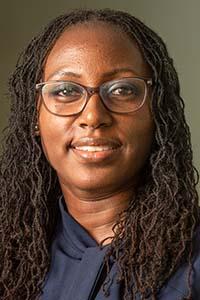
Omega Lee, most recently deputy director of the Online MBA program and veterans services coordinator at UC Davis, has been executive director of Summer Sessions since 2023. “Students are looking for community,” she said. “We want to give them that sense of belonging.”
Food, often the centerpiece of student programs, can be expensive, and adding events amid budgetary constraints can be a challenge. So, Lee said, Summer Sessions lessened its reliance on food as an attraction and has partnered with other campus units and existing events, like Moth Night.
Creating community online
Another challenge is creating community for students studying online, whether they are near campus or at a distance. Summer Sessions has nearly doubled its online course offerings since last year to 61, with an additional 30 hybrid options. More are in the pipeline for the future.
While food features in fewer events, it was the focus for one online. Nezrin Hasanly, a Summer Sessions student herself and one of the two interns, arranged to have the Teaching Kitchen, a program of the Aggie Compass Basic Needs Center, present a virtual cooking class. The recipe was shared in advance, and students nearby could pick up an ingredient kit — complete with spices — from Aggie Compass.
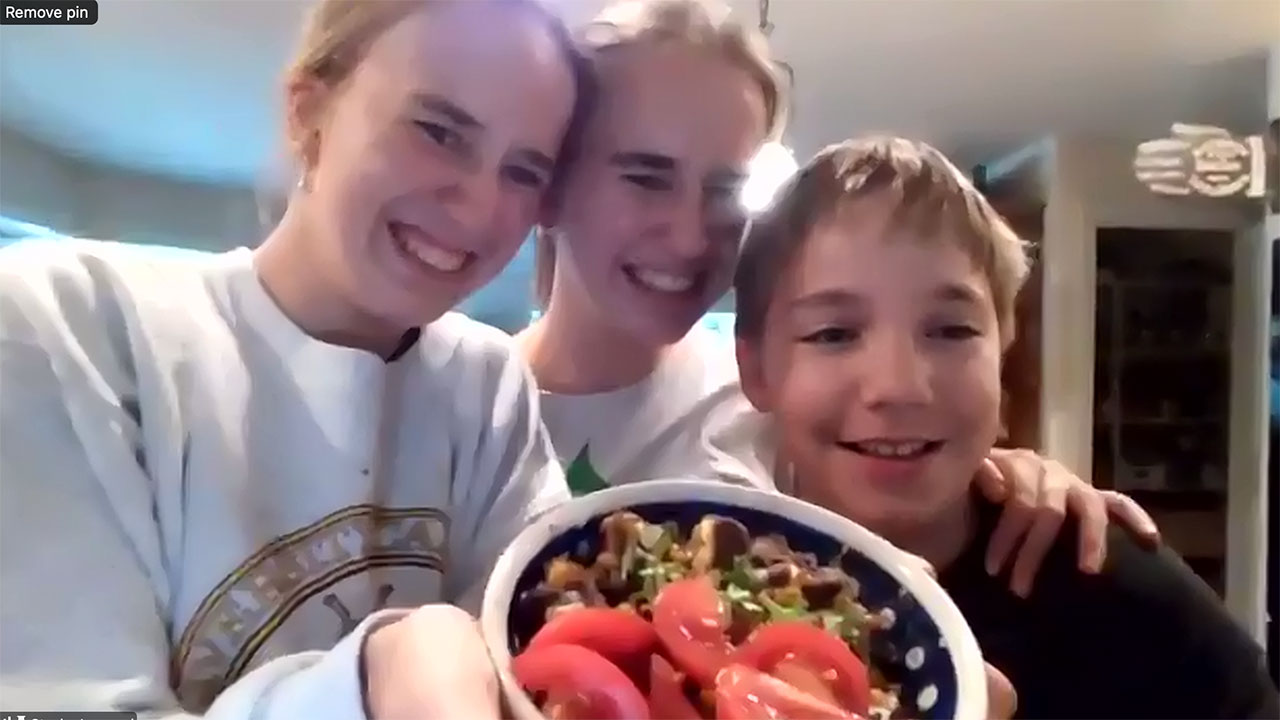
Over Zoom from Eureka, California, Stasha Leonard, the kitchen’s student coordinator, led participants in making Southwestern bowls with rice and beans for dinner. On the menu Aug. 12 for the second session’s class is chickpea curry.
Biala and Shaddai Ihegworo, a Summer Sessions student and the other intern, have been learning origami, so they can present by Zoom on Aug. 27 a class on the Japanese art of folding paper into finished sculpture.
Resources for summer students
Summer Sessions students have access to UC Davis student resources, from Counseling Services to the Activities and Recreation Center, and Summer Sessions is working to ensure those resources are well known and accessible. The team held its first resource fair and an annual summer financial aid webinar in April, and it highlights summer resources on the Summer Sessions website and in social media posts.
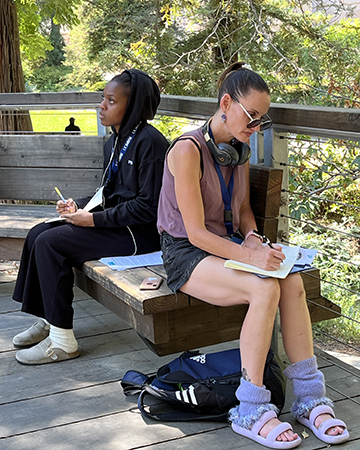
New this year is the Summer Scholars Writing Academy, a collaboration of Summer Sessions and the Writing Center to help students enhance their creative and academic writing skills. The free, non-credit program explores topics ranging from collaborative writing to overcoming writer’s block in eight, one-hour classes.
Katie Taylor, a re-entry student and busy mother of three, squeezed the academy in among in-person and online classes for two courses toward a psychology minor. On track to meet the requirements of a sociology degree at the end of winter quarter, she said she wanted to gain more confidence in her writing.
“I’ve been pleasantly surprised with how much fun it is,” Taylor said during a session on writing in nature, held in the Arboretum. “It’s giving us ways to think out of the box and get ideas on paper.
“A lot of people don’t know there are so many resources.”
